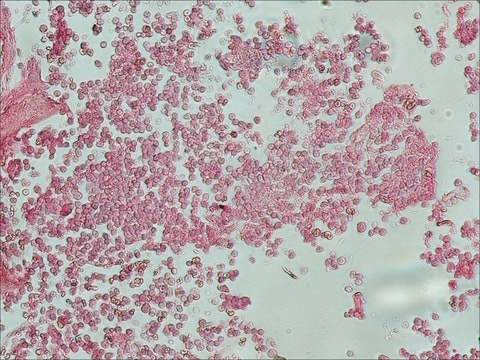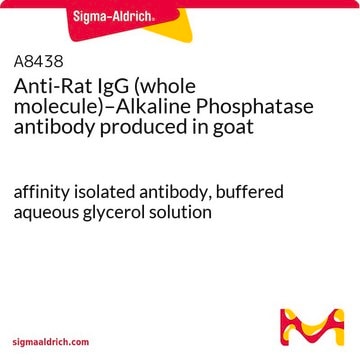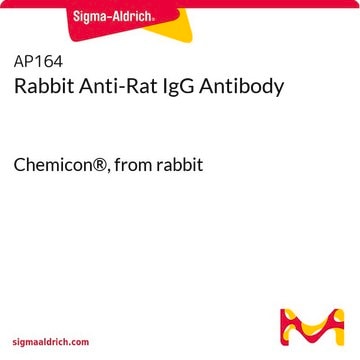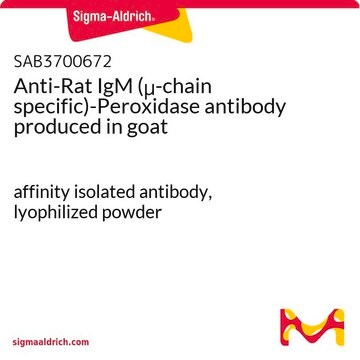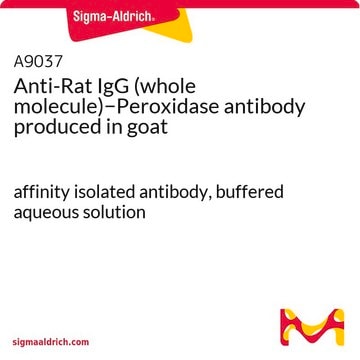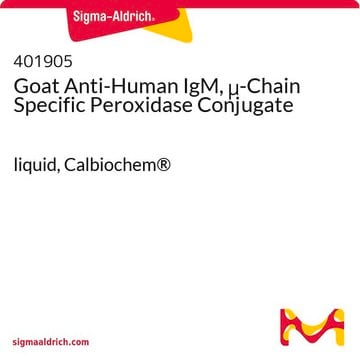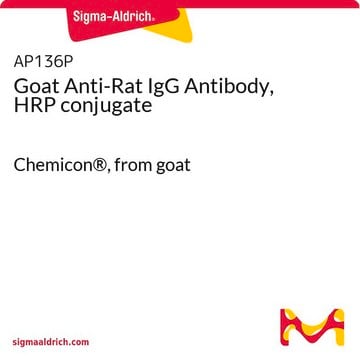R0886
Monoclonal Anti-Rat IgM antibody produced in mouse
clone RTM-32, ascites fluid
About This Item
Produits recommandés
Source biologique
mouse
Niveau de qualité
Conjugué
unconjugated
Forme d'anticorps
ascites fluid
Type de produit anticorps
secondary antibodies
Clone
RTM-32, monoclonal
Contient
15 mM sodium azide
Technique(s)
capture ELISA: suitable
dot blot: suitable
immunocytochemistry: suitable
indirect ELISA: 1:1,000
western blot: suitable
Isotype
IgG1
Conditions d'expédition
dry ice
Température de stockage
−20°C
Modification post-traductionnelle de la cible
unmodified
Description générale
Monoclonal Anti-Rat IgM antibody is specific for an epitope present on the heavy chain of rat IgM. By immunoblotting, the antibody detects the denatured-reduced heavy chain molecule of rat IgM (μ-chain). The product recognizes rat IgMs derived from normal serum or myeloma proteins, but does not detect other rat immunoglobulins. In assays such as indirect ELISA and dot blot, the antibody weakly associates with guinea pig immunoglobulins. The product does not bind to IgG or serum preparations obtained from bovine, cat, chicken, dog, goat, horse, human, mouse, pig, rabbit, or sheep.
Spécificité
Immunogène
Application
- indirect ELISA (1:1,000)
- immunocytochemistry
- immunohistochemistry
- dot blot
- immunoblotting
Actions biochimiques/physiologiques
Forme physique
Stockage et stabilité
Clause de non-responsabilité
Vous ne trouvez pas le bon produit ?
Essayez notre Outil de sélection de produits.
Code de la classe de stockage
10 - Combustible liquids
Classe de danger pour l'eau (WGK)
nwg
Point d'éclair (°F)
Not applicable
Point d'éclair (°C)
Not applicable
Certificats d'analyse (COA)
Recherchez un Certificats d'analyse (COA) en saisissant le numéro de lot du produit. Les numéros de lot figurent sur l'étiquette du produit après les mots "Lot" ou "Batch".
Déjà en possession de ce produit ?
Retrouvez la documentation relative aux produits que vous avez récemment achetés dans la Bibliothèque de documents.
Notre équipe de scientifiques dispose d'une expérience dans tous les secteurs de la recherche, notamment en sciences de la vie, science des matériaux, synthèse chimique, chromatographie, analyse et dans de nombreux autres domaines..
Contacter notre Service technique